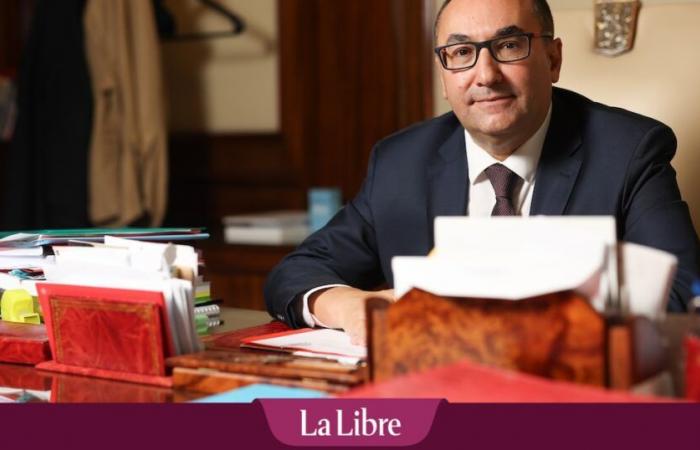On the other hand, in Seraing, where the socialist mayor Déborah Géradon has a very short absolute majority which she wishes to open to another party, this is not possible. The chosen one fears, we are told, of losing feathers in the adventure. She suspects the PTB of wanting to leave the majority towards the end of the legislature and thus weaken the socialists a stone’s throw from the next municipal election which will take place in 2030.
The discourse is very different in Brussels, where the president of the Socialist Federation, Ahmed Laaouej would rather see it as a way for the PS to weaken the PTB by bringing it into power. By wetting the radical left, which would participate for the first time in its history in power in French-speaking Belgium, the PS could silence the very harsh opposition that the PTB has been leading against it for many years. At the PS we know that the success of the PTB over the last ten years is not unrelated to the erosion of the socialist vote vote after vote.
Here is why the PS/PTB negotiations could accelerate at the start of next week in Schaerbeek, Forest and Molenbeek
The socialists who discuss with PTB elected officials also note that the party seems to be letting go on many subjects, such as the economy and housing, which were nevertheless spearheads of the far-left party’s program. Only governance issues would be at the center of their concerns during the negotiations. The future PTB aldermen would reduce their salaries, but they could accept that the aldermen of the other lists maintain the salaries provided for by decree, even if all this has not yet been decided. This is one of the elements which could constitute a trap, according to certain socialist elected officials, who fear seeing the PTB leave the majorities during the legislature.
Ultimately, the PTB and the PS could therefore join forces in at least three municipalities, two in Brussels and one in Wallonia. A first, since, during the campaign, rapprochements between the two left-wing parties seemed excluded.
The PTB also seems to have changed strategy by agreeing to come to power in certain municipalities. Six years ago, exploratory discussions between the PS and the PTB in Charleroi, Herstal and Molenbeek were held, but they quickly came to an end. The PS then considered that the PTB’s demands were excessive, and the PTB that the PS was not ready to implement policies that broke with the past.
This now seems to be over. A Walloon socialist elected official even recently confided that the PTB negotiators in his commune were “reasonable people”.
From now on, we are awaiting the presentation of the majority pacts, which must be submitted by Monday, November 11 at the latest. If the PTB enters the majority of the municipalities mentioned above, it will be a turning point in Belgian political history. The PTB was indeed in the majority alongside the Flemish socialists in Zelzate during the previous municipal legislature – they were however returned to the opposition by Vooruit the day after the election of October 13 – but this never happened in Wallonia and in Brussels.






